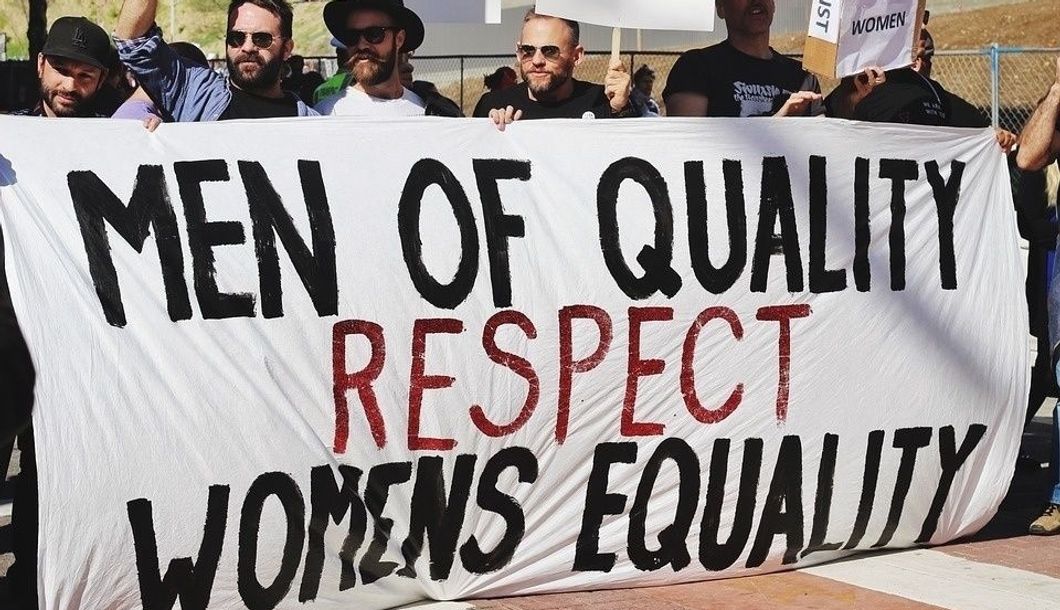Feminism is More Than An Instagram Story
With all the chaos that is going on in the United States it is far too easy to get caught up in U.S. centered feminism and the progression of issues that primarily affect American women.
Okay…don't feel attacked. We all love Instagram Stories and there is nothing to be ashamed about as we shout out all the amazing women in our lives during International Women's Day. However, I do think we need to refocus our feminist agenda for the rest of Women's History Month and following International Women's Day last week. Which means we need to look beyond the Instagram shout outs and really think big. By big, I mean we need to look at feminism through a global perspective.
With all the chaos that is going on in the United States it is far too easy to get caught up in U.S. centered feminism and the progression of issues that primarily affect American women. But as intersectional feminists (as we all should identify) all social justice issues are inherently feminist issues. Which means that as a feminist it is our duty to wholeheartedly support women in all locations and through all crises they endure. Essentially, this means holding yourself accountable as a true intersectional feminist because issues that impact human lives are not up for debate.
Take for example, the border crisis. This is both a domestic and global issue, but most of the time when we talk about it we look at the alleged "chaos" of the people entering the United States and fail to truly understand the root causes of why so many people are seeking asylum in this country. And even more so, the disproportionate rate at which women are abused along this journey in their home countries and along their journeys across the border. Thus, the border crisis also becomes a FEMINIST ISSUE and as feminists we must stand in solidarity with our sisters traveling for the hope of a safer life.
To look even further into the issue, the Northern Triangle (Guatemala, Honduras and El Salvador) has particularly large amounts of (gender-based) violence within their countries leading to lots of migrants entering the United States. This gender-based violence can be attributed to gangs in countries like El Salvador, however one thing to note is that these gangs became active following the deportation of young people from the United States following criminal convictions (Oxfam El Salvador). Not to mention, the toxic machista culture in these Central American cultures forces women to bear the consequences of crime and violence within their communities as the designated inferior beings. Alongside this, many asylum seekers are being sent back to Mexico by American authorities to wait until their asylum claim can be processed, which is illegal! During these waiting periods and at all other points during the migration process, women are disproportionately abused and raped by men, for example look at this article the New York Times posted last week here. This issue in particular is completely overlooked and not considered within conservative America's discussion about migration policy. I could go on.
Essentially what all of this shows is that America is responsible for many of these violations and only further perpetuates the deteriorating conditions within the Northern Triangle. By refusing to give all asylum-seekers their necessary protection and acknowledging the unacceptable treatment towards women along the border, American policy is complacent in the face of these horrific human rights violations.
The same goes for so many other issues such as work and labor violations occurring in countries abroad for products that are then put into our favorite supermarkets (check it out here), which then creates another root cause for why people feel the need to migrate. It is all connected and the only way to act as a true ally is to stand by women on all platforms and all countries!
Last week I had the privilege of speaking with TPS (Temporary Protected Status) recipient, Rebeca Alfaro one on one and was able to see the intense level of trauma that comes along with this journey. A journey rooted not in hopes for more money or to steal American jobs, but solely to escape horrific violence and protect the lives of her children. There are so many misconceptions surround the causes for migration, especially towards the treatment of women who are choosing to migrate. This Women's History Month I will be honoring women like the one I spoke to and so many that have come before her, who had the courage to make their goals a reality.
I'm hoping these details can further emphasize how critical it is that our feminism is truly intersectional for the sake of all women that are suffering globally from issues that extend beyond the American scope. As much as I enjoy using this month to applaud our change-makers and progress for feminism, I think we need to also take the opportunity to showcase the global inequality and violations towards women everywhere. In order to stand strong by the ideals of intersectional feminism, we must ensure that our efforts progress the equality and empowerment of women everywhere, otherwise it is NOT real feminism. By focusing on these women we can help to create a more inclusive and accountable feminism that stands by the idea of progress for ALL women.
For additional information check out this fact sheet: https://www.womensrefugeecommission.org/rights/resources/1685-myth-vs-fact-refugees-seeking-protection-at-the-us-southern-border
Or here for more details on the story of Rebeca Alfaro: https://thinkprogress.org/salvadoran-gangs-killed-her-family-now-her-daughters-may-be-deported-back-to-their-deaths-126cb5343638/
And check out Oxfam America or Alianza Americas for ways to take action.
Image source: NYT



























